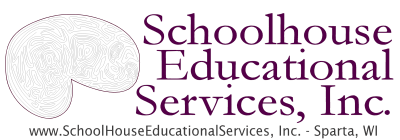Do You Have What You Need for Dyslexia Assessment?
Do you have everything you need for dyslexia assessment? A comprehensive dyslexia assessment should involve more than just testing IQ and basic reading skills. It should also include assessment of reading fluency, spelling, phonological processing, orthographic processing, rapid automatic naming, working memory, and other processes involved in reading. Formal input, such as standardized rating scales, from teachers and parents would also be helpful. New recommendations and intervention ideas are also called for. For example, do you have recommendations for helping a child with an orthographic processing weakness?
An estimated 5 to 8 percent of the school-age population may have dyslexia. According to the International Dyslexia Association, dyslexia is “a specific learning disability that is neurobiological in origin and is characterized by difficulties with accurate and/or fluent word recognition and by poor spelling and decoding abilities.”
Dyslexia Subtypes
- Deep dyslexia involves problems applying phonological rules and a weakness in phonological processing. It is often labeled as Dysphonetic Dyslexia or Phonological Dyslexia.
- Surface dyslexia is characterized by low sight word vocabulary, weak reading of irregular words, slow reading rate, and spelling errors. These difficulties are usually attributed to a deficit in orthographic processing which is the ability to visually recognize and remember printed words, letter sequences, and letter patterns and to spell phonetically irregular words.
Mixed dyslexia, which is common in dyslexics, is an appropriate diagnosis when the reader displays both surface and deep characteristics.
Assessment Recommendations
With the current emphasis on the neurobiological basis of dyslexia, cognitive assessment should focus on the neurological correlates of dyslexia to determine if significant neurological processing deficits exist.
The main processes associated with dyslexia that should be assessed are:
- phonological processing
- orthographic processing
- auditory processing
- oral language
- processing speed
- verbal long-term recall
- visual-spatial long-term recall
- rapid automatic naming
- verbal working memory
- visual-spatial working memory.
Dyslexia Assessment and Intervention Resources
Schoolhouse Educational Services sells numerous resources to assist you with understanding, assessing, and treating dyslexia. See the list of some options below.
- Test – Reynolds Dyslexia Risk Assessment (RDRA)
- Test – Screening of Reading Readiness (SORR)
- Test – Feifer Assessment of Reading (FAR)
- Test – Comprehensive Test of Phonological Processing, 2nd Edition (CTOPP-2)
- Test – Test of Orthographic Competence, 2nd Edition (TOC)
- Webinar – Webinar – Early Identification of Dyslexia Webinar by Dr. Milton J. Dehn
- Book – The Neuropsychology of Reading Disorders
- Book – The Dyslexia Checklist: A Practical Reference for Parents and Teachers
- Book – Essentials of Assessing, Preventing, and Overcoming Reading Difficulties
- Laminated Guide Bundle – Laminated Reference Guide (bundle) on Dyslexia interventions
- Laminated Reference Guide – Using PASS Processes to Identify Developmental Dyslexia
